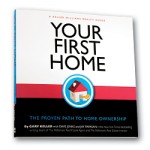What is a Short Sale?
A Short Sale is the sale of a home when sales proceeds do not fully pay off the existing loan(s) and lender(s) accepts a discounted payoff to fully satisfy the loan.
The best part, the existing lender pays virtually all sales costs, including commissions, escrow and title fees and repair costs.
You get your home sold, the loan(s) paid off and you avoid foreclosure.
Is a Short Sale right for me?
Mortgage lenders are increasingly willing to work with borrowers faced with a financial hardship to accept a discounted payoff on a mortgage. If you are faced with a hardship that makes it likely you will be unable to meet your obligation on your mortgage, your lender would prefer to settle the matter with you as opposed to taking the property through foreclosure.
As you consider the option of pursuing a Short Sale, remember your lender is looking to limit any potential loss on your loan. By completing a Short Sale, your lender has arrived at a solution that is, for them, much better than a foreclosure.
Bottom line, your lender wants to work with you.
If I do a Short Sale, how much will I have to pay to sell my home?
Nothing. It’s true, in most cases you will pay literally no sales costs if your lender approves the Short Sale. All commissions, title and escrow fees, and even most repair expenses are paid by the lender as part of the Short Sale approval. We will include the *following clause in the contract.
"Seller’s agreement to sell is subject to approval by existing lender of a Short Sale at no cost to Seller. Seller shall not be required to deposit funds to close escrow."
Remember, lenders approve Short Sales and accept the resulting loss in an effort to avoid bigger losses through foreclosure.
How do I get started on a Short Sale?
It’s easy. If you would like to get prequalified for a Short Sale, we can do it online.
If you would prefer to discuss it on the phone, or set an appointment call 703-431-8310. There is no charge to you to get started. It is as simple as contacting us and we will get to work. If you later decide you don't want to do a short sale, that is okay too.
Can I simply deed my property to someone else and avoid the hassle?
Deeding your property to someone without paying off the loan is nearly always a bad idea. In the first place, the lender still considers you primarilyresponsible for payment on the loan. If loan payments do not get paid, or if the lender ultimately forecloses, this will show on your credit.
Secondly, when you deed your property to someone else, you give up control of the property. Along with the deed goes the ability to control the property.
Do not deed your property to someone without paying off the loan unless you have consulted with an attorney.
What sort of hardship would my lender consider legitimate?
To some extent, that will depend upon the mortgage company considering the Short Sale request. Generally, so long as the hardship is real and the mortgage company believes the loan is likely to become delinquent as a result, the Short Sale request will be processed by the Loss Mitigation Department. A big key to getting Loss Mitigation to accept a hardship is to submit a strong hardship letter. The hardship letter sets the tone for the entire file.
Below you will find a list of “hardships” that are common and frequently accepted by mortgage lenders.
- Family illness or injury
- Illness or injury in the extended family – particularly if it forces relocation
- Job relocation when the property is equity deficient
- Job loss or significant income loss
- Divorce or split of domestic partners
- Adjustment in mortgage or unforeseen increase in living expenses



